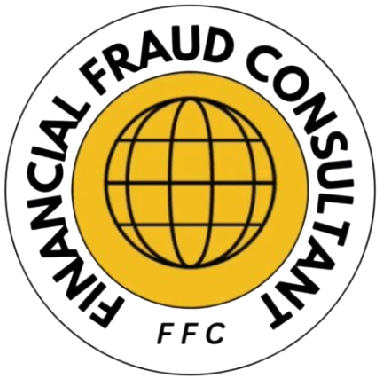
The convenience of credit cards is undeniable, but the ease with which they can be misused often masks the severe legal consequences of unauthorized use. Many people might assume that using someone else’s credit card, even for a small purchase, is a minor offense, perhaps resulting in just a fine or a slap on the wrist. The reality, however, is far more serious. Unauthorized credit card use, often categorized as credit card fraud or identity theft, can lead to significant prison time, hefty fines, and a criminal record that impacts every aspect of life.
This article provides a comprehensive legal breakdown of the potential prison sentences for using someone else’s credit card, exploring the definitions, state and federal statutes, influencing factors, and related offenses.
I. Defining Credit Card Fraud and Unauthorized Use
Before delving into the penalties, it’s crucial to understand what precisely constitutes “using someone else’s credit card” in the eyes of the law. This act falls under the umbrella of fraud, specifically credit card fraud or access device fraud.
Generally, credit card fraud involves:
- Unauthorized Use: This is the most common scenario, where an individual uses a credit card or its information without the express permission or consent of the cardholder. This could be a physical card, or just the card number, expiration date, and security code. Even if the card is “borrowed” from a friend or family member without explicit permission for the specific transaction, it can be considered unauthorized use.
- Intent to Defraud: A key element in prosecuting credit card fraud is the “intent to defraud.” This means the perpetrator knowingly and intentionally used the card to deceive the cardholder or the financial institution to obtain money, goods, or services unlawfully. An accidental misuse (e.g., mistakenly grabbing the wrong card) typically lacks this intent.
- Credit Card Theft: This involves the physical taking of a credit card from another person without their consent. The act of theft itself is a separate crime, which then often leads to credit card fraud if the card is subsequently used.
- Counterfeiting or Altering Cards: Creating fake credit cards or modifying legitimate ones to make unauthorized purchases also falls under credit card fraud and often carries even harsher penalties due to the added element of forgery.
Read More on How to Recover Crypto from a Scam: Immediate Steps & Expectations
II. State Laws and Penalties for Credit Card Fraud
The majority of credit card fraud cases are prosecuted at the state level. Each state has its own specific statutes and sentencing guidelines, meaning the penalties can vary significantly depending on where the crime occurred. However, common themes exist, primarily revolving around the monetary value of the fraud and the offender’s criminal history.
State laws typically classify credit card fraud as either a misdemeanor or a felony:
- Misdemeanor Credit Card Fraud:
- Threshold: This classification is generally reserved for cases involving smaller monetary amounts. The specific dollar threshold varies widely by state, but it often ranges from under $500 to under $1,000.
- Penalties: A misdemeanor conviction typically results in less severe penalties compared to a felony. These can include:
- Fines (e.g., up to $1,000).
- Probation.
- Restitution (repaying the victim for losses).
- Jail time in a local county or city jail, usually for a period of less than one year (e.g., 30 days to 12 months).
- Example: In Florida, if the fraudulent use of a credit card occurs less than two times or the value of the items obtained is less than $100, it can be considered a first-degree misdemeanor, punishable by up to one year in jail and a $1,000 fine [Herman Law, “Is Credit Card Fraud a Felony in Florida?”]. Similarly, in California, using a stolen or fraudulent card to obtain goods or services valued under $950 within a six-month period can be prosecuted as petty theft, a misdemeanor, carrying up to six months in county jail and a $1,000 fine [Helfend Law Group, “Penalties for Credit Card Fraud in California”].
- Felony Credit Card Fraud:
- Threshold: When the amount of money or value of goods obtained through fraud exceeds the state’s felony threshold (e.g., over $500, $1,000, or higher, depending on the state), the crime becomes a felony. Aggravating factors, such as the involvement of identity theft or a sophisticated scheme, can also elevate a misdemeanor to a felony regardless of the amount.
- Penalties: Felony convictions carry much more severe consequences, including:
- Substantial fines (e.g., up to $5,000, $10,000, or more).
- Lengthy prison sentences served in state correctional facilities. The duration can range from a few years to over a decade, depending on the felony class.
- Mandatory restitution to victims.
- A permanent felony criminal record.
- Example: In Colorado, possessing two or more financial devices (including credit cards) illegally is a felony, with penalties ranging from 12 to 18 months in prison for a Class 6 felony, and potentially 1 to 3 years for a Class 5 felony if four or more devices are involved [SQN Banking Systems, “Debit and Credit Card Fraud Penalties”]. California’s Penal Code 484g, if the value exceeds $950, can be charged as grand theft, a “wobbler” offense that can be prosecuted as either a misdemeanor or a felony. As a felony, it can carry up to three years in county jail and a $10,000 fine [Helfend Law Group, “Penalties for Credit Card Fraud in California”].
It is crucial to consult the specific criminal statutes of the state where the alleged offense occurred to understand the precise credit card theft penalties and classifications.
III. Federal Laws and Penalties for Credit Card Fraud
While most credit card fraud cases are handled at the state level, certain circumstances can elevate the crime to a federal offense, leading to even more severe penalties. Federal prosecution typically occurs when the fraudulent activity:
- Crosses State Lines: For example, making an online purchase with a stolen card from a retailer in a different state.
- Involves Federally Insured Financial Institutions: Such as banks insured by the FDIC.
- Is Large-Scale or Organized: Involving multiple victims, significant financial losses, or a criminal enterprise.
- Utilizes Federal Instruments: Like the U.S. Postal Service (mail fraud) or interstate wire communications (wire fraud).
The primary federal statutes used to prosecute credit card fraud include:
- 18 U.S. Code § 1029 – Fraud and Related Activity in Connection with Access Devices: This is the cornerstone federal law for credit card fraud. It prohibits various acts, including:
- Knowingly using or trafficking in counterfeit, fictitious, altered, forged, lost, stolen, or fraudulently obtained credit cards.
- Possessing 15 or more counterfeit or unauthorized access devices.
- Obtaining anything of value aggregating $1,000 or more within a one-year period through fraudulent use of an access device.
- Penalties: A conviction under 18 U.S.C. § 1029 can lead to substantial fines (up to $250,000) and imprisonment. The maximum prison sentence can range from 10 years to 15 years in federal prison, depending on the specific subsection violated and the nature of the offense (e.g., whether it involved device-making equipment or affected financial institutions) [Wallin & Klarich, “Federal Credit Card Fraud (18 USC 1029)”; Federal Criminal Defense Advocates, “18 U.S.C. § 1029 | Federal Credit Card Fraud”].
- 18 U.S. Code § 1028A – Aggravated Identity Theft: This statute is particularly significant because credit card fraud often involves the misuse of another person’s identifying information. If credit card fraud is committed “during and in relation to” certain other federal felonies (known as predicate offenses), a defendant can be charged with aggravated identity theft.
- Mandatory Minimum Sentence: A conviction under 18 U.S.C. § 1028A carries a mandatory minimum sentence of two years in federal prison. This sentence must be served consecutively, meaning it is added on top of any prison time received for the underlying credit card fraud or other predicate felony [Cornell Law School, Legal Information Institute, “18 U.S. Code § 1028A”]. This significantly increases the overall identity theft prison time.
- Example: If someone uses a stolen credit card (a violation of 18 U.S.C. § 1029) and, in doing so, uses the cardholder’s name or other identifying information, they could face charges under both statutes, leading to the underlying fraud sentence plus an additional, consecutive two years for aggravated identity theft.
Federal cases typically involve more complex investigations by agencies like the FBI and carry harsher penalties, reflecting the broader impact of these crimes on interstate commerce and national interests. The U.S. Sentencing Commission’s Quick Facts on Credit Card and Other Financial Instrument Fraud for Fiscal Year 2023 indicates that the average sentence imposed for these offenses was 27 months, with 91.0% of individuals sentenced to prison [U.S. Sentencing Commission, “Credit Card and Other Financial Instrument Fraud”].
IV. Factors Influencing Sentencing
While statutes provide ranges, the exact prison time for unauthorized credit card use is determined by a judge, who considers various factors:
- Amount of Loss: This is often the most significant factor. Higher financial losses directly correlate with longer sentences. Federal sentencing guidelines, for instance, have a detailed table linking loss amounts to offense levels. The median loss for credit card and other financial instrument fraud cases in FY 2023 was $116,545 [U.S. Sentencing Commission, “Credit Card and Other Financial Instrument Fraud”].
- Criminal History: Defendants with prior convictions, especially for similar fraud or theft offenses, will almost always face more severe sentences.
- Sophistication of the Scheme: Crimes involving elaborate planning, the use of advanced technology (e.g., skimmers, phishing campaigns), or multiple conspirators are viewed more seriously and can lead to increased penalties.
- Role in the Offense: Individuals who played a leadership or supervisory role in the fraud scheme typically receive harsher sentences than those who were minor participants.
- Number of Victims: If the fraud affected numerous victims, this can be considered an aggravating factor.
- Abuse of Trust: If the perpetrator used a position of trust (e.g., an employee with access to customer credit card information) to commit the fraud, the sentence may be enhanced.
- Cooperation with Authorities: In some cases, a defendant’s substantial cooperation with law enforcement and prosecutors can lead to a reduced sentence, known as a “substantial assistance departure.”
V. Related Offenses Often Charged with Credit Card Fraud
Credit card fraud rarely stands alone. Prosecutors often bring multiple charges that stem from the same criminal conduct. These can include:
- Identity Theft: As discussed, this is frequently charged alongside credit card fraud, especially when personal identifying information (like a Social Security number or date of birth) is used to obtain or misuse a credit card.
- Forgery: If the perpetrator altered a credit card, created a counterfeit one, or forged a signature, they could face forgery charges.
- Larceny/Theft: The act of physically stealing the credit card itself.
- Mail Fraud (18 U.S.C. § 1341) and Wire Fraud (18 U.S.C. § 1343): These broad federal statutes are often used when the fraud involves the use of mail or interstate wire communications (like phone calls or internet transmissions). They carry significant penalties, including up to 20 years in prison.
- Conspiracy: If two or more individuals planned and carried out the credit card fraud together, they could also be charged with conspiracy.
VI. The Impact of a Conviction Beyond Prison Time
Beyond the immediate threat of credit card fraud jail time, a conviction for credit card fraud carries a host of long-term consequences that can severely impact an individual’s life:
- Permanent Criminal Record: A felony conviction, in particular, will remain on your record, making it difficult to secure future employment, especially in financial sectors.
- Difficulty Obtaining Credit: Financial institutions are unlikely to extend credit (loans, mortgages, new credit cards) to individuals with a fraud conviction.
- Housing Challenges: Landlords often conduct background checks, and a fraud conviction can make it challenging to find housing.
- Professional Licenses: Certain professional licenses may be revoked or denied.
- Reputational Damage: The stigma of a fraud conviction can affect personal relationships and standing in the community.
- Deportation: For non-citizens, a fraud conviction can lead to deportation.
Conclusion
The question “How Much Prison Time for Using Someone Else’s Credit Card?” reveals a complex legal landscape with severe consequences. What might seem like a minor transgression can quickly escalate into a serious felony, carrying substantial prison sentences at both state and federal levels. The exact legal consequences of credit card fraud depend on the amount of money involved, the sophistication of the scheme, the presence of identity theft, and the offender’s criminal history. Understanding these realities is paramount, as the legal system views unauthorized credit card use not as a petty offense, but as a serious breach of financial trust with significant penalties.
References:
- Helfend Law Group. “Penalties for Credit Card Fraud in California.” Robert M. Helfend Criminal Defense Attorney. https://www.robertmhelfend.com/criminal-defense/fraud/credit-card-fraud-penalties/ (Accessed May 24, 2025).
- Herman Law. “Is Credit Card Fraud a Felony in Florida?” Herman Law P.A. https://rhlawfl.com/white-collar-crime/is-credit-card-fraud-a-felony-in-florida/ (Accessed May 24, 2025).
- SQN Banking Systems. “Debit and Credit Card Fraud Penalties.” SQN Banking Systems Blog. https://sqnbankingsystems.com/blog/credit-and-debit-card-fraud-penalties/ (Accessed May 24, 2025).
- Wallin & Klarich. “Federal Credit Card Fraud (18 USC 1029).” Wallin & Klarich, A Law Corporation. https://www.wklaw.com/practice-areas/federal-crimes/federal-credit-card-fraud-18-usc-1029/ (Accessed May 24, 2025).
- Federal Criminal Defense Advocates. “18 U.S.C. § 1029 | Federal Credit Card Fraud.” Federal Criminal Defense Advocates, PLLC. https://www.thefederalcriminalattorneys.com/fraud-crimes/federal-credit-card-fraud (Accessed May 24, 2025).
- Cornell Law School, Legal Information Institute. “18 U.S. Code § 1028A – Aggravated identity theft.” Legal Information Institute. https://www.law.cornell.edu/uscode/text/18/1028A (Accessed May 24, 2025).
- United States Sentencing Commission. “Quick Facts on Credit Card and Other Financial Instrument Fraud (Fiscal Year 2023).” USSC.gov. https://www.ussc.gov/research/quick-facts/credit-card-and-other-financial-instrument-fraud (Accessed May 24, 2025).
READ MORE:




